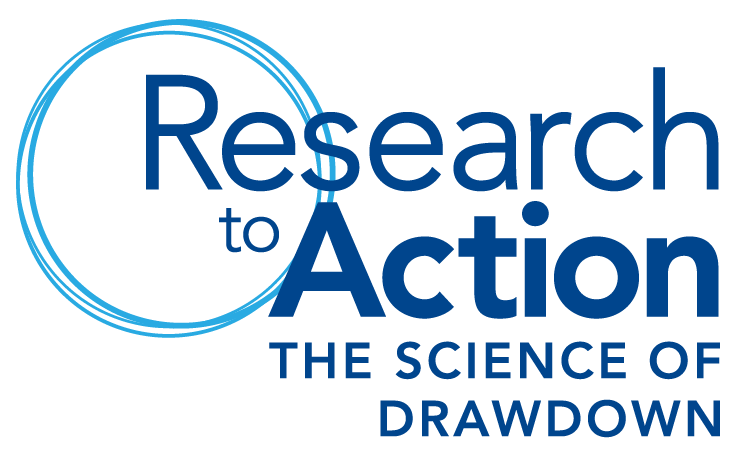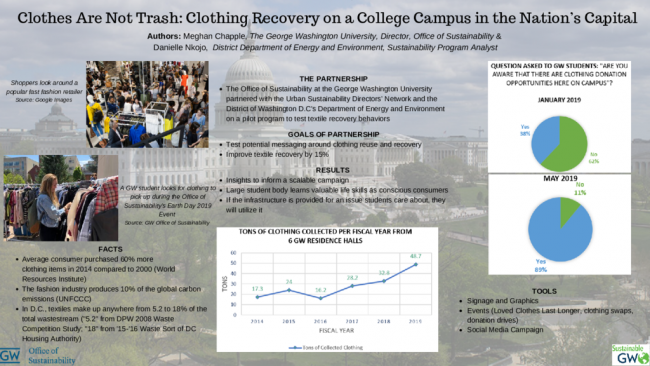The abundance and availability of inexpensive clothing reduces its value to the customer to the point of conveying disposability. In 2014, according to the World Resources Institute, the average consumer purchased 60 percent more items of clothing as compared to 2000, but each garment was kept half as long. This emerging “fast fashion” consumer demand has major repercussions for the climate. The UNFCCC reports that the fashion industry produces 10 percent of the global carbon emissions and, the sector’s emissions are rapidly rising. The Nation’s Capital is not immune to such consumption patterns. Textiles make up anywhere from 5-18% of the District of Columbia’s (D.C.) waste stream. D.C. partnered with The George Washington University (GW) to use the campus as a testbed for local outreach and communications strategies for reducing the impact of textile waste on global climate change.
The goal of the partnership was to test potential messaging around clothing reuse and recovery, and to improve textile recovery by 15%. The university campus provided a confluence of three key components to the study: young adult consumers who tend to discard items after a few wears, a captive audience, and a sample of the larger population in D.C. The partnership has provided the local municipal leaders of the District with insights to inform a scalable campaign for impacting textile recovery across the city. Additionally, it has provided a large student body with experiential learning at a formative time for gaining life skills as conscious consumers.


